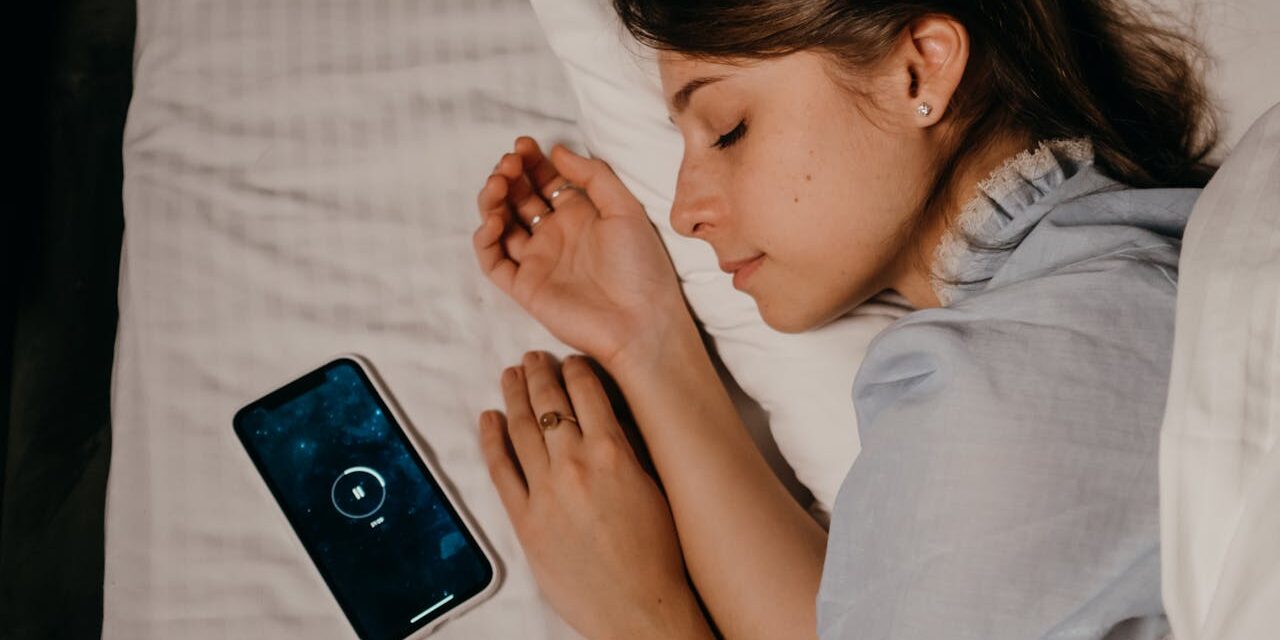Checking smartphones when waking up overnight keeps teens awake longer. Image credit: Polina Kovaleva
By Christian Scott
Sleep is essential for healthy adolescent development. However, many adolescents struggle to get the high quality, adequate sleep that they need to thrive. The ever-increasing use of cell phones and other technology, particularly right before bedtime, is a contributing factor. Research from the Winston Center on Technology and Brain Development used smart watch technology to quantify the effect of middle-of-the-night smartphone use on sleep, shedding light on how overnight digital habits impact teens’ quality of rest.
PhD student Shedrick Garrett led a study on smartphone use among a diverse group of 59 US high schoolers. Teens provided two weeks’ of data on their average screen time and number of notifications, all tracked automatically by their iPhone’s built-in Screen Time app. During this same time period, the teens wore a smartwatch that recorded their sleep quality and the number of times they woke up each night.
The study found that participants woke up an average of nearly three times a night and were generally awake for about three to four minutes each time. When teens used their screens more or picked up their phone more around these wake-ups, they stayed awake longer. This suggests that reaching for the phone when waking up at night may prolong the length of what would otherwise be quick wake-up periods.
The study also found no relationship between getting more notifications and longer waking times. This suggests that, while phone use in general might disrupt sleep patterns, notifications alone might not have the same impact. Thus, different levels of engagement with smartphones have different impacts on sleep: Actively engaging with the phone by picking it up is more disruptive to sleep than just receiving a notification.
This study used new methods to more precisely pinpoint how smartphone use relates to adolescent sleep. As disturbed sleep can harm adolescent health and well-being, these results may be particularly relevant for parents wondering if they should limit their teens’ smartphone use at night – or even leave smartphones out of the bedroom overnight.
Considerations
Though this study recruited a racially diverse sample of participants, they were iPhone users who remembered to consistently send the researchers screenshots of their phone data. As a result, they may not be representative of all adolescents.
Article reference
Garrett, S.L., Burnell, K., Armstrong-Carter, E.L., Nelson, B.W., Prinstein, M.J., & Telzer, E.H. (2023). Links between objectively-measured smartphone use and adolescent wake events across two weeks. Journal of Clinical Child & Adolescent Psychology, 1-11.

